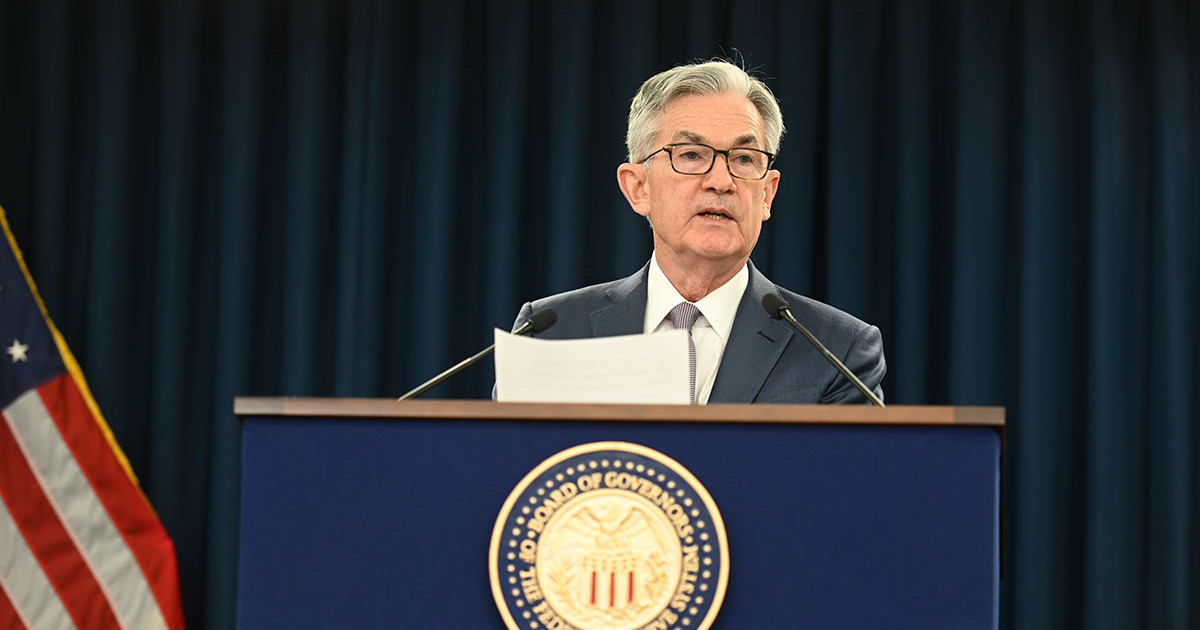When Federal Reserve Chairman Jerome Powell speaks, investors listen. They listen as if there are fortunes to be made by guessing correctly about when the Fed might begin cutting back on the amount of U.S. government-backed debt it buys every month. They listen for the stray word that could spook financial markets. Mr. Powell’s speech on Aug. 27 proved to be unspectacular in all the ways that count on Wall Street. Nevertheless, it was a spectacle.
The people striving to interpret every nuanced statement—financial analysts, hedge fund managers, investment bankers—apparently were pleased with Mr. Powell’s performance. The S&P 500 and Nasdaq Composite climbed to records following the Fed chief’s speech, which included his observation that monetary-policy makers shouldn’t “attempt to offset what are likely to be temporary fluctuations in inflation.” Bond yields dropped concurrently with his remarks.
But for people who live off paychecks rather than portfolios, the game of deciphering Fed officials’ intentions is a sideshow that leaves them further behind. This is no way to run monetary policy. Our nation’s central bank has become too prominent, too political and too powerful.
The Fed’s ability to purchase massive quantities of U.S. Treasury securities is the dominant factor influencing interest rates across the board and thus the valuation of financial assets. The entire term structure of bond yields reflecting the relationship between short-term and long-term rates is keyed to the 10-year Treasury note rate. What would that benchmark yield reveal if Fed purchases weren’t distorting the market?
The Fed’s prominence not only undermines supply-and-demand interactions for accurately pricing the cost of investment capital; it also compromises the relationship between fiscal and monetary policy. The Fed’s accommodation of deficit spending by lawmakers poses a conflict of interest with political implications. Besides ensuring that the government’s interest expense for servicing debt is reduced, the Fed remits back to Treasury the earnings on its own holdings.
If that seems like a good deal, why not have the central bank take ownership of 100% of U.S. government debt held by the public ($22.2 trillion) instead of the current 24% ($5.34 trillion)? Then our government’s interest outlays on public debt would all be paid to the Fed, which would then remit the net income from those earnings back to Treasury—where they are classified as “receipts” to the federal budget.
Seriously, are there any restrictions on how much government-backed debt the Fed can purchase for its own portfolio? On March 23, 2020, the Fed’s monetary-policy committee voted to address “strains in the markets for Treasury securities and agency mortgage-backed securities” by authorizing the Federal Reserve Bank of New York to increase its holdings of these assets “in the amounts needed” to support the smooth functioning of markets “until instructed otherwise.” The markets for both types of assets are no longer strained; rather, they are bloated by the Fed’s ramped-up purchases, which have artificially lowered interest rates and financing costs.
Meanwhile, the Fed continues to accumulate those assets—its current $8.33 trillion balance sheet total equals 37% of U.S. gross domestic product. In 2020 Fed remittances to the Treasury amounted to $86.9 billion, prompting at least one member of Congress to express his appreciation. During Mr. Powell’s semiannual testimony on monetary policy on July 14 before the House Financial Services Committee, Rep. Brad Sherman (D., Calif.) said he wanted to “applaud the Fed” for consistently remitting its “profit” to the Treasury, adding: “I think you should focus on it because it is very important.”
What is particularly sobering about the Fed’s ability to expand its balance sheet is that it happens by tapping a keyboard. The Fed’s asset purchases are implemented electronically by means of a digital blip that increases the seller’s depository account by the amount of the transaction.
All this should alarm citizens and put Congress on notice—because that’s too much power for a government agency run by unelected officials. It has given rise to monetary-policy actions that channel financial benefits to certain segments of society at the expense of others.
Even as Mr. Powell laments that “joblessness continues to fall disproportionately on lower-wage workers in the service sector and on African-Americans and Hispanics”—as he said in last week’s speech—the Fed’s solution of buying Treasury debt and agency mortgage-backed securities seems ill-suited to the problem. It hardly improves the financial prospects of those not invested in rising equity markets. It doesn’t make today’s median-priced $374,900 home more affordable, even with rock-bottom mortgage rates.
It’s time for Congress to face up to its responsibility to regulate the value of money—a power granted by the Constitution in the same sentence that grants Congress the right to establish weights and measures. Money is meant to be a standard, a dependable measure, that works for everyone by providing clear price signals so free-market interactions lead to optimal economic outcomes.
By outsourcing this task to the Fed, Congress has absolved itself of responsibility for its own complicity in financing excess government spending at levels that would set off alarms about sustainability if exposed on a consolidated financial statement. By shrinking from the duty to challenge the Fed’s expanding role in the economy—while ignoring the inherent unfairness of speeches by monetary officials that cater to the attuned ears of financial experts—Congress is abrogating its own oversight mandate to ensure equal justice.
It’s time to re-establish the notion of a monetary standard that would serve as a true benchmark, not subject to the words of central bankers.









